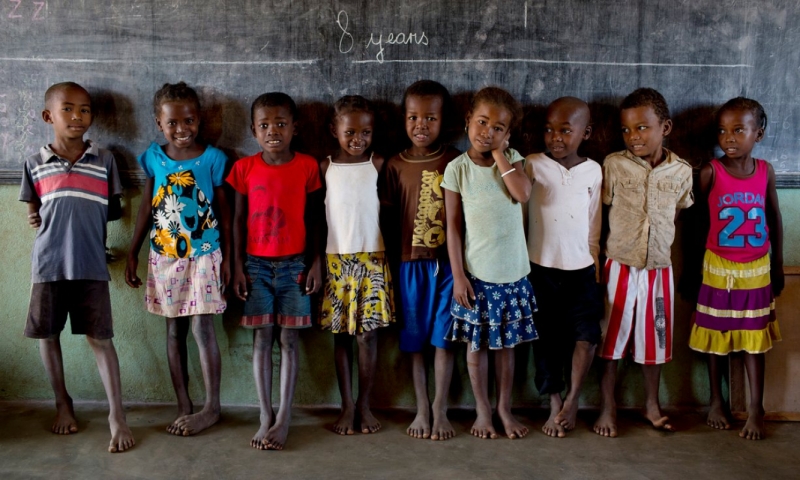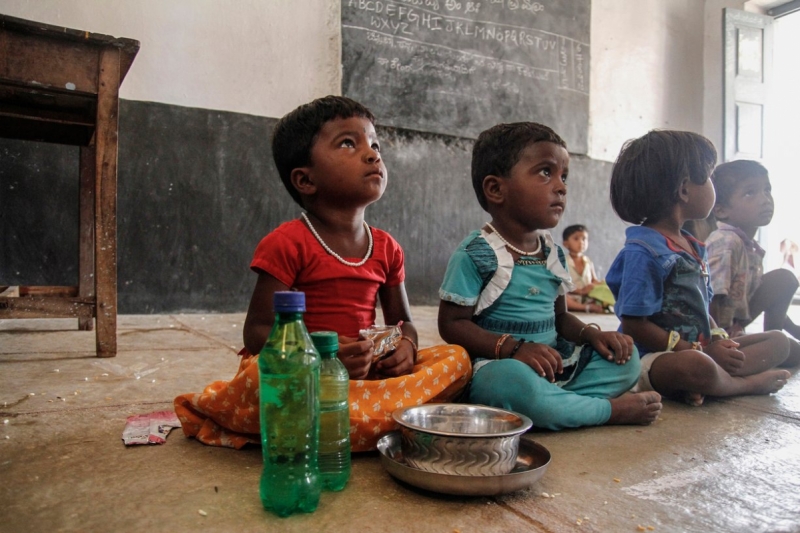



 The Guardian - Save the Children tells Rio nutrition summit that despite global pledge to end malnutrition by 2030, millions of children will be malnourished far into the next century
The Guardian - Save the Children tells Rio nutrition summit that despite global pledge to end malnutrition by 2030, millions of children will be malnourished far into the next centuryMillions of children will continue to suffer far into the next century from physical and mental stunting as a result of undernutrition, Save the Children has found, despite world leaders pledging last year to eradicate all forms of malnutrition by 2030.
The news comes amid the launch on Thursday of a global summit on food security – Nutrition for Growth (N4G) – in Rio de Janeiro, a day before the city prepares to open the Olympic Games. The conference – a follow-up to the 2013 N4G in London, which saw $23bn (£17.5bn) pledged to end malnutrition – will see governments, donors and businesses reconvene to assess targets and take stock.
Campaigners are hoping to use the summit to push for more urgent political and economic support.
“Malnutrition is a daily emergency,” said Roberto Cabrera, country director for Save the Children in Guatemala, who attended the Rio summit. “Good nutrition is a matter of life or death, as 45% of deaths of children under five are linked to malnutrition. Yet Save the Children’s projections show that on current trends, there will still be 129 million malnourished children by 2030, with children in more than 50 countries projected to be malnourished far into the next century.”
Save the Children’s findings, published in June, paint a dismal picture of how little progress has been made on curbing malnutrition, particularly in sub-Saharan Africa and south Asia. Rates have actually increased since 2000 in 13 countries, including Papua New Guinea and Eritrea, while in Niger and Malawi – where food insecurity is a major issue – stunting is forecast to be eradicated only 122 years after the 2030 target, in 2152.
Stunting is a result of malnutrition in the first two years of a child’s life, and limits physical height, as well as emotional, social and cognitive development.
Globally, child malnutrition rates have decreased by a third since 1990, the charity’s data shows. But this progress has been completely skewed, with certain groups far more susceptible to food insecurity than others.
Girls, children from ethnic minorities, disabled children, and those affected by war and living in disadvantaged regions are at a much greater risk of malnutrition, Save the Children says. Children living in rural areas are 1.37 times more likely to to be stunted than those in urban areas, the report says, while children from the poorest 20% of families are twice as likely to die before they turn five than those from the wealthiest 20% of families.

Yet tackling malnutrition doesn’t just involve food, said Jo Lehmann, from WaterAid, as access to clean water and good hygiene practices are also essential in stopping it entirely. “In the past, most malnutrition programmes have only focused on food, and that’s quite a big oversight, given that the WHO [World Health Organisation] estimates 50% of malnutrition is associated with infections caused by unsafe water and poor sanitation,” says Lehmann. “What we want to see here at WaterAid is that Wash [water, sanitation and hygiene] is integrated into these nutrition programmes, so we can end hunger by 2030.”
With future summits regarding malnutrition expected later this year and in 2017, campaigners expect not just money, but real schedules, to be cemented to meet international goals.
“If we are going to end malnutrition by 2030, or even in the next century, then the leaders – governments, donors and businesses – must be ready to articulate commitments, resources and plans for tackling malnutrition ahead of an ambitious pledging summit in 2017,” said Cabrera.